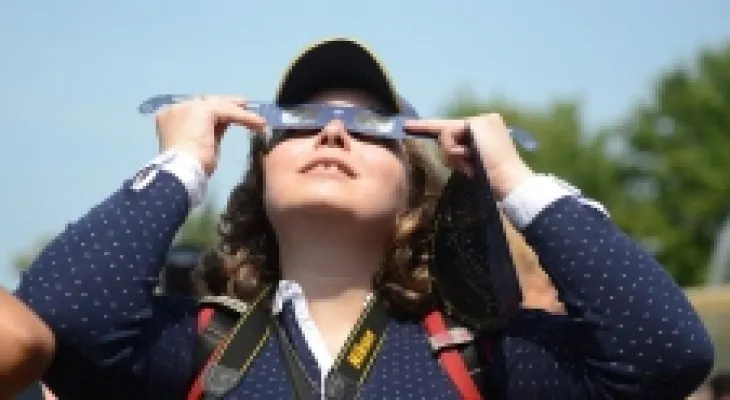Search here
Newspaper
Search here

Arab Canada News
News

Published: January 31, 2024
Canada's largest school board is scheduled to vote on Wednesday on whether it should review the school calendar so that students can stay home on the day when a rare solar eclipse will trace a path across parts of Canada.
If the Toronto District School Board votes in favor of the review, it will join at least six other school boards in Ontario, as well as two school service centers in Quebec, who have already informed parents of class cancellations on April 8 in preparation for the celestial event.
"Looking directly at the sun during the eclipse, without proper protection, can lead to serious problems such as partial or total loss of vision," said TDSB staff in a document outlining the agenda for the board meeting Wednesday night.
There are also traffic safety concerns as thousands of children will be returning home at the end of the day in temporary darkness... out of an abundance of caution, staff recommend that the board move the (sports activity) day scheduled in April from April 19, 2024, to April 8, 2024."
It added: "There is no significant impact in changing the date."
The document noted that school boards in the Greater Toronto Area, such as those in the Peel, Durham, and Halton regions, have already made the change, and other boards have moved the previously scheduled sports activity day to April 8.
The eclipse is expected to be first observed in Mexico around 11:07 a.m. Pacific Time, when the moon moves between the Earth and the sun, casting its partial or total shadow on the "lucky humans" who can watch this moment.
Elena Hyde, a professor of physics and astronomy at York University in Toronto, said: The eclipse will then be visible in the United States before moving toward southern Ontario, then Quebec, New Brunswick, Prince Edward Island, and Cape Breton in Nova Scotia, lasting about two hours at the same time many children in Canada are allowed out of school.
Hyde, who is also director of the York Alan Carswell Observatory, said: "It has a curved path and everyone is very excited about it." "Even those of us who study astronomy for a living have not yet seen a total solar eclipse, so fingers are crossed."
Hyde pointed out that the partial eclipse is scheduled to cast its shadow over several parts of southern Ontario, while observers in Ontario communities specifically in Niagara Falls, Hamilton, and Grimsby can expect near-total darkness for about four minutes between 2 p.m. and 4 p.m. Eastern Time.
Due to the rarity of this celestial event, Hyde said precautions must be taken, especially with children, including not looking directly at the eclipse.
She said that Canadian school boards that reschedule sports activity days to keep children at home are making the right decision.
She continued, "The big danger in this event is, of course, that many people will try to look at the sun, which is extremely dangerous for your eyes; you can literally go blind."
"The pure intensity of the light coming from the sun will be enough to permanently damage the sensitive materials inside your eye, and it’s not worth the damage."
Dr. Melissa Genuero, spokesperson for Estrie Public Health, representing the Eastern Townships region in Quebec where the eclipse is expected to cast its shadow, said authorities leave the option to close or not close schools to individual schools.
However, she said they emphasize the need for proper adult supervision to ensure that children watch the eclipse safely – including on school buses.
She explained that these guidelines include ensuring children wear protective glasses or watch the event indirectly using "eclipse boxes," and monitoring those who have difficulty following instructions.
"Can we really guarantee the safety of all children when there is no adult on the bus supervising them and telling them not to look, or to look only with glasses?"
Hyde said parents can take advantage of such a unique April day to teach their children astronomy.
She continued, "It’s a great opportunity for people to take a day off and enjoy something that won’t happen again for another 100 years."
"This is a very unusual event for the sky in general; you have to be in the right place exactly, and at the right time exactly."
In New Brunswick, the province said schools may have early dismissal times to allow students to safely reach their destinations before the eclipse begins.
Jodi Desallier, communications officer at the Department of Education and Early Childhood Development, wrote in a statement: "The administration has informed the districts of this, and more details will be shared with families."
"This phenomenon will be presented as a real educational opportunity in New Brunswick, and we are fortunate to have partners and experts to make this experience more meaningful and safe."
Comments